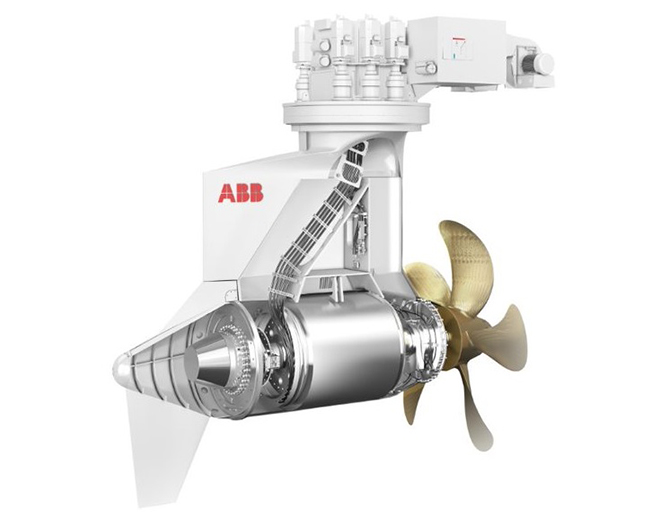An independent study for ABB by marine consultancy Deltamarin has found that the ABB Azipod electric propulsion system for ferries could save up to $1.7 million in annual fuel costs per vessel.
By simulating a transit on seven existing ferry routes, researchers found that a ferry equipped with twin 10 MW mid-power range Azipod units consumed less fuel compared to a similar vessel powered by a traditional shaftline propulsion system. Thanks to this lower fuel consumption, ABB says an Azipod-powered ferry could reduce CO2 emissions by approximately 10,000 tons per year, equivalent to about 2,200 passenger cars per year.
ABB says the global ferry industry is facing increased pressure to meet the International Maritime Organization’s target of reducing annual emissions by 30 percent by 2025.
To help ferries improve energy efficiency and lower emissions, the company is launching a new series of mid-power range Azipod propulsion systems in June 2019. The latest series will be available in the 7.5 to 14.5 MW power range and will fill the gap between the low-power and high-power range of Azipod propulsors already in the market. With this expansion, the Azipod propulsion family now covers the power range of 1-22 MW.
In the Azipod propulsion system, the electric drive motor is in a submerged pod outside the ship hull. It can rotate 360 degrees to increase maneuverability and operating efficiency. According to ABB, the system is proven to cut fuel consumption by up to 20% compared to traditional shaftline propulsion systems.
“We are continuously strengthening our portfolio of electric, digital and connected solutions that maximize the potential of ships and ultimately enable more sustainable operations,” said ABB Presient Peter Terwiesch. “With the launch of the mid-power range Azipod propulsion, we will be able to empower more shipowners to improve the performance of their vessels while lowering environmental impact.”
Source: ABB



















































